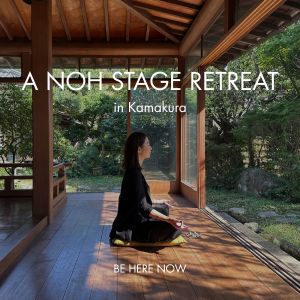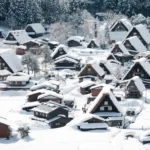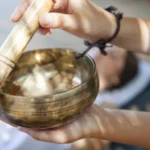Winter in Japan (December to February) is a season where the crisp, clear air and snowy landscapes calm the mind and are ideal for deep introspection. Wellness in Japanese winter is centered on protecting the body from the cold and maintaining body temperature. At the same time, because it is a period of reduced activity, value is placed on confronting one’s inner self and allowing the mind and body to rest deeply. Warm meals, traditional bathing culture, and the tranquility brought by snowy scenery are key elements that form winter wellness. Through wellness activities unique to this season, let’s experience a fulfilling journey that satisfies both mind and body.
Winter Wellness Activities
Onsen and Snow-viewing Baths
Onsen is a symbol of winter wellness in Japan. Soaking in an open-air bath while snow falls is an exceptional experience that warms the body to its core, promotes blood circulation, and aids in fatigue recovery. You can also enjoy the diverse effects of different spring qualities, such as skin-beautifying and relaxing effects.
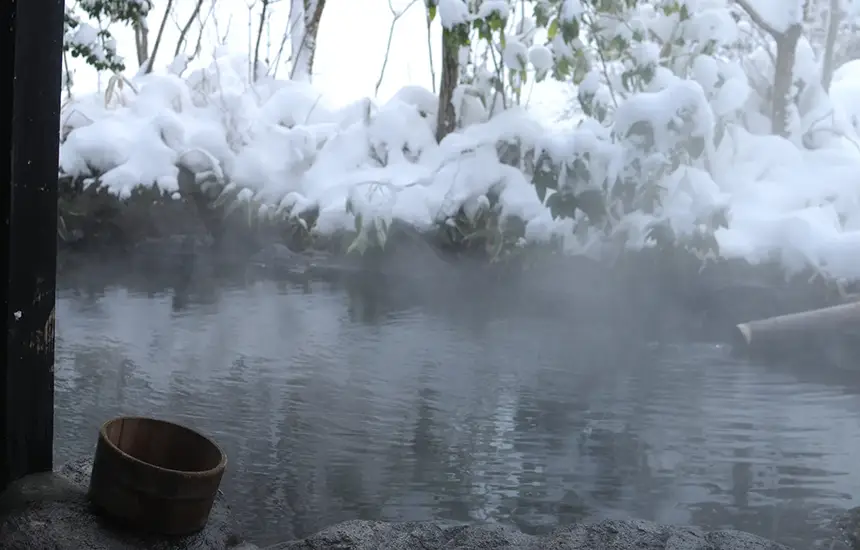
Winter Sports and Unity with Nature
Winter sports such as skiing, snowboarding, and snowshoeing are activities that allow you to move your body while enjoying the beautiful winter nature. Exercising in the crisp air of the snowy mountains enhances cardiopulmonary function and brightens your mood.
Snowshoeing, in particular, allows even beginners to easily explore the snowy mountains and have a moment to calm their minds in nature’s tranquility.
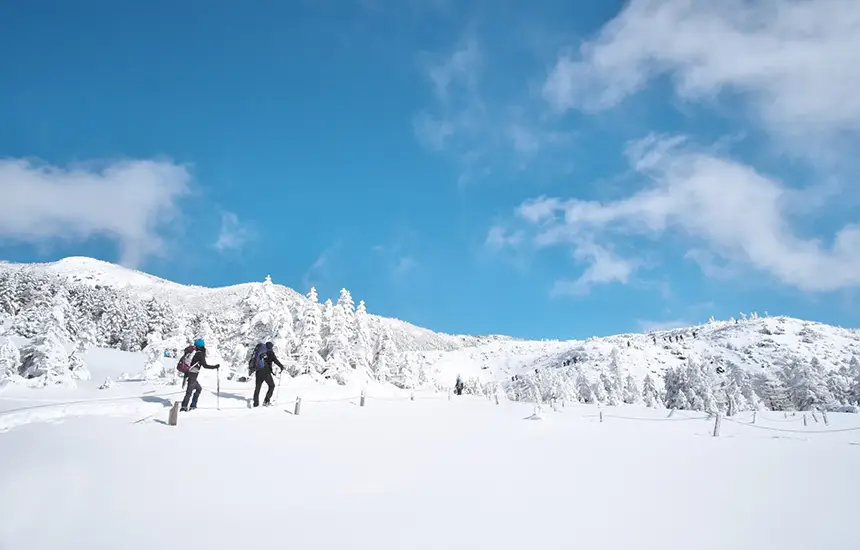
Zazen and Meditation
The cold and quiet winter is a suitable season for deepening your self-understanding.
Zazen (Zen meditation) and meditation at temples or specialized facilities help calm your mind and improve concentration. Practicing these while gazing at the snow scenery can lead to a deeper relaxation effect, where your mind quietens and daily tension melts away.
Meals to Warm the Body and Replenish Nutrients
Nabe (hot pot) dishes are a nutritious menu where you can consume many ingredients at once. Root vegetables like ginger, green onions, daikon radish, and burdock, which are common ingredients in hot pots and stews, have a warming effect on the body. Warm drinks like atsukan (hot sake), amazake, and hot tea can also warm the body from within and have a relaxing effect, as well as support the maintenance and improvement of immunity. Furthermore, as winter has shorter daylight hours, it is easy to become deficient in Vitamin D, which is important for bone health and immune function. To supplement this, it is recommended to include fatty fish like salmon and mackerel, and mushrooms like shiitake and wood ear mushrooms in your meals to help manage your health in winter.
Winter Wellness Information for Each Area
There are many places throughout Japan where you can have wellness experiences that are unique to winter.
Hokkaido and Tohoku
Hokkaido’s Niseko and Furano, renowned for their high-quality powder snow, are popular regions for winter sports and boast excellent open-air baths with snow views. It is precisely in the chilly winter that you can fully savor the comforting warmth of hot springs as they heat your body from the core. The Tohoku region, including Akita’s Nyuto
Onsenkyo and Yamagata’s Ginzan Onsen, features many charming hot spring towns where you can experience the traditional Japanese atmosphere, along with secluded baths surrounded by snow and winter events like “Kamakura Festivals” (snow hut festivals).
Chubu
Nagano’s Hakuba and Shiga Kogen, with the magnificent nature of the Northern Alps, are home to high-quality ski resorts where you can also enjoy snow yoga and snowfield walks.
Gifu’s Okuhida Onsenkyo, for example, is a quiet and peaceful region where you can enjoy meals around an irori (traditional Japanese hearth) and the atmosphere of a hot spring cure resort, allowing your mind and body to relax.
Kansai, Chugoku, and Shikoku
In Hyogo’s Kinosaki Onsen, strolling between the public baths in a yukata (light kimono) is a classic activity, and crab dishes are popular in winter. In Tottori’s Daisen, you can fully enjoy snow mountain activities like skiing and snowshoeing, and Misasa Onsen’s “radon spring” is expected to invigorate mind and body and boost immunity.
Kyushu
Relatively mild even in winter, Oita’s Yufuin and Beppu are hot spring areas boasting abundant hot water. You can experience various qualities of hot springs. The ethereal scenery of rising steam provides deep healing for your eyes and gently releases tension from your mind and body. The hot spring experience in the crisp winter air is truly exceptional as it warms your body from the core.
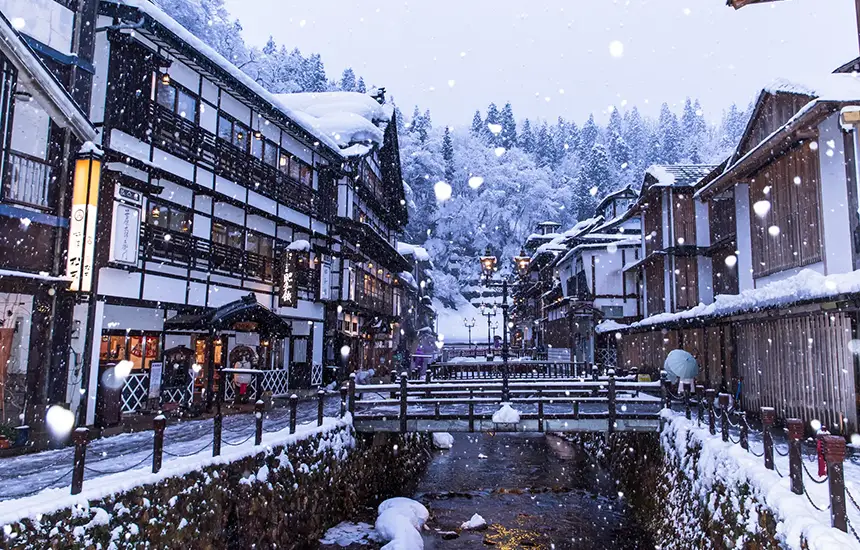
Learning from Ancient Japanese Wisdom: Winter Self-Care and Mind-Body Harmony
To maximize winter wellness, a dual approach from both body and mind is essential. By incorporating traditional Japanese self-care practices and lifestyle habits, you can achieve a comfortable harmony between your mind and body.
“Stillness” to Sharpen the Five Senses
In the quiet of winter, try listening to the sounds of nature: falling snow, burning firewood, or birds chirping. Slowly savor a warm drink, or feel the steam of a hot spring on your skin.
By sharpening your five senses, you can relax more deeply and enhance your concentration.
“Onkatsu” (Warming Activities) to Improve Circulation
It is said that coldness is the source of many illnesses. In winter, especially, be mindful of “onkatsu,” or warming your body from the inside. In addition to hot springs, it is effective to actively incorporate warm drinks and seasonal ingredients that warm the body, such as ginger and root vegetables. Also, protecting your body from the cold in daily life, such as warming the “three necks” (neck, wrists, and ankles) with thick socks and layers, is a secret to spending winter healthily.
Harmony of “Movement” and “Stillness”
While it’s easy to become less active in winter, try to engage in moderate exercise that can be done indoors or outdoors. Stretching, yoga, and walking are also effective. On the other hand, it’s important to avoid overexertion, ensure sufficient sleep and rest to prevent fatigue, and value “stillness” to maintain mind-body balance – a core concept of ancient Japanese self-care.
Capturing Nature’s Blessings in Scent
On long winter nights, it is also recommended to use a Japanese aroma diffuser with scents like hinoki (cypress) or yuzu (citrus) for their relaxing effects, or to slowly savor warm medicinal herbal teas or herbal teas. Incorporating nature’s blessings through scent and taste is one of the healing customs that the Japanese have cherished for centuries.
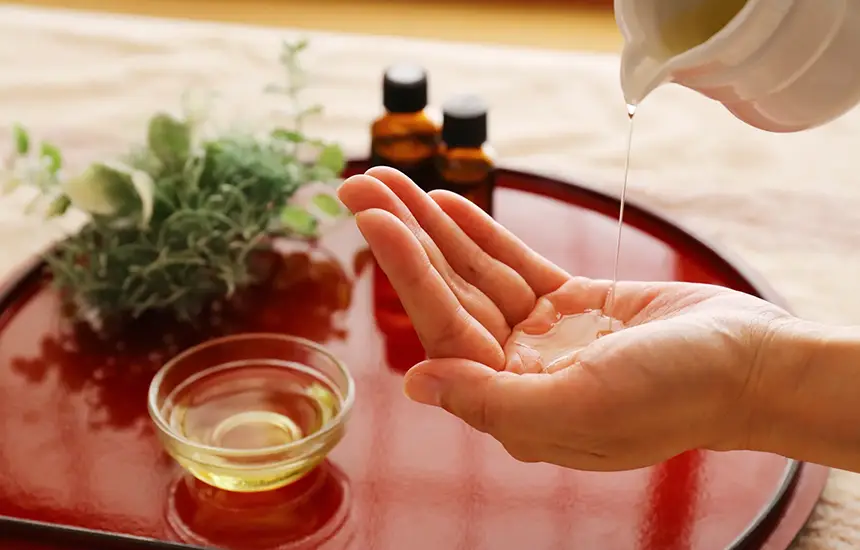
Digital Detox to Cherish “Ma” (Space)
In modern life, constantly surrounded by smartphones and PCs, the tranquil winter environment is suitable for a digital detox. By consciously stepping away from digital devices and spending time on reading, meditation, or connecting with nature, your mind will feel clear, and you will gain mental peace. Cherish the time to quiet your mind by focusing on empty spaces, symbolized by the “Ma” (Space) in Japanese houses.





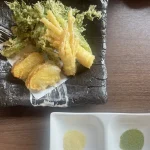

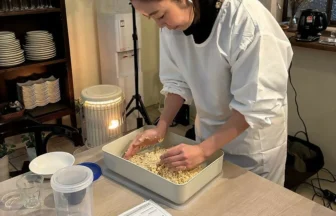
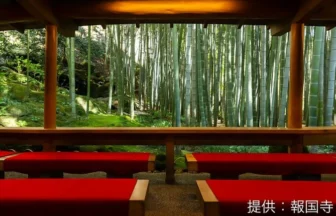
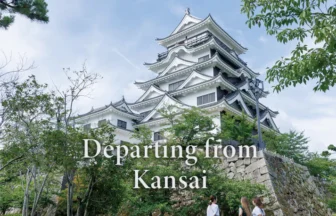
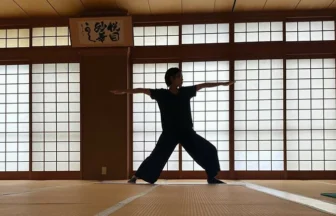
 Sponsored
Sponsored

